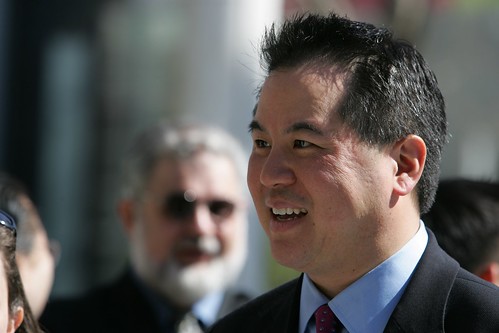Yet another reason to be proud of our city is that San Francisco was “crowd sourcing” government long before the Internet era.
On any given day, hundreds of neighbors, activists and well-meaning agitators crowd into hearing rooms to help shape our local government. And over the years – they have shaped it, almost always, for the better.
But in my experience there are two key barriers to making sure elected officials and appointed Commissioners hear the Wisdom of the Crowds – whether those crowds show up in person or online. First, there is always a certain suspicion that the people who come and testify do not necessarily represent the community as a whole. (That’s a challenge we are trying to address with our User Generated Government site www.ResetSanFrancisco.org, and hope to write separately on that issue in the coming weeks).
Second, and I think most importantly, there is frequently an impulse on the part of the government to bias “expert” testimony over the first-person appeals of constituents – even though these constituents almost always have the greatest expertise on how government decisions will impact their own neighborhoods and families.
It is this perception gap between crowd testimony and “expert opinion” that we are trying to help close with www.ResetSanFrancisco.org – with a set of features that our community members can use to gain technical expertise on issues.
The personal experiences we bring to government are powerful and important – and they should be highlighted, not diminished. But the crowds engaging government will be even more impactful if they have a sound mastery of the facts, the history and sometimes even the very technical details of government mechanics. The truth is, the more we know, the better we will be at making an impact.
The most important tool is tried and true – the library. Our site is working to highlight those articles, books, and blogs “Worth a Read” so San Francisco activists can gain useful knowledge. If you have good ideas – let us know.
And we are working to give our community members a chance to engage directly with experts – through our online “Ask an Expert” webcasts. Our next webcast is this Thursday at 4pm with Michael Cohen, the former director of the San Francisco Office of Workforce and Economic Development.
Michael is one of those rare people who has both an expert’s grasp of the big picture and a technician’s mastery of the details of government. It was a big loss when he left city government after more than a decade of outstanding service. But we hope his expertise will be a big benefit to our Reset community.
There are some in our community that didn’t always agree with Michael’s vision of economic development. But now all of us can get a chance to draw on his expertise. I hope you can tune in Thursday at 4 or anytime on our site after the event to ask Michael a question about how to make our economy stronger and more equitable.
Phil Ting
[email protected]

